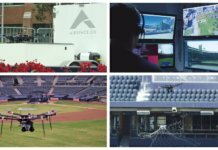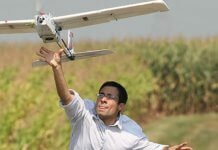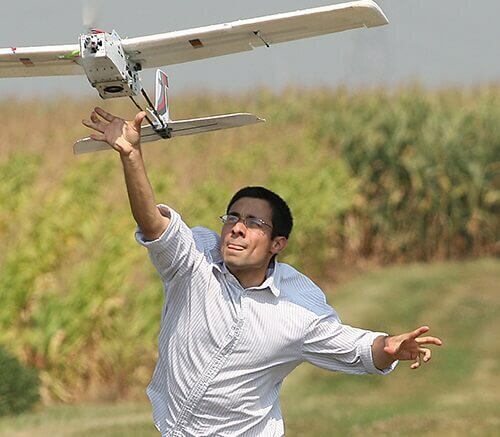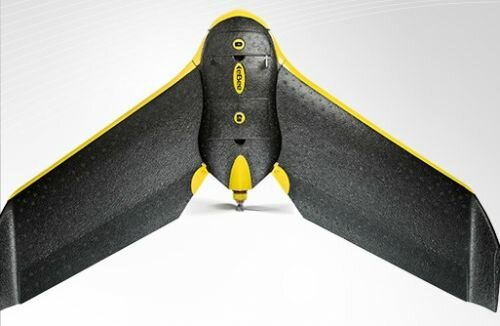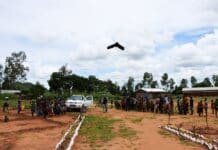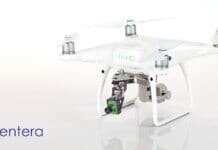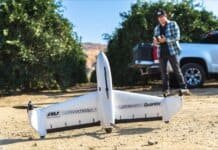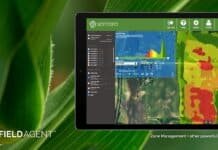Progeny Drone Inc., a Purdue University-affiliated start-up, has created software that rapidly converts drone-captured crop photos into useful information for plant breeding, crop modeling and precision agriculture, the Indiana-based university has announced.
Anthony Hearst, co-founder and CEO of Progeny Drone and a Ph.D. candidate in agricultural and biological engineering at Purdue University, says the agriculture industry has been overwhelmed with trying to obtain actionable data about crop health and development in real time from unmanned aerial vehicles (UAVs).
“Progeny Drone can do this fast with our software,” Hearst says. “Rather than taking days to weeks, we can do it in minutes, and it is very affordable. We don’t need to rely on supercomputers or cloud computing. We can do it on a laptop. This will help us provide a much faster turn-around time at a lower price than our competitors.”
Purdue says Progeny Drone rapidly turns images into custom-zoned, quality-controlled growth and development metrics. The ability to quickly collect, interpret and analyze the data is vital in agriculture because field conditions can change rapidly, according to Hearst.
Progeny Drone also can take previously collected data, even from previous growing seasons, and glean useful information. It can process image backlogs or new imagery and automatically extract images of research plots or management zones within minutes.
Katy Rainey, co-founder and chief technology officer of Progeny Drone and assistant professor of plant breeding and genetics in Purdue’s Department of Agronomy, says the hype about drones has led many crop researchers and producers to buy the technology without knowing exactly what to do with the images to get a return on their investment.
“We can provide growth and development metrics that are relevant, whether that be for plant breeding, crop modeling or precision agriculture,” Hearst says. “We can quantify different traits that are valuable for selection of the best varieties or other physical properties related to crop health and yield potential that will be useful for field management.”
According to Purdue, other companies often rely on supercomputers and cloud computing to do such work, but they often do not provide automated, custom-zoned precision metrics.
Rainey says being able to depend on Progeny Drone to gather information for decision-making should free up manpower to do other work.
“The goal is to provide data to people so they can be more efficient and effective when they are in the field,” she says.
Hearst and Rainey say another advantage of Progeny Drone is that it doesn’t need ground control points.
“You can just go out and fly your drone. You don’t need to set up anything in the field beforehand,” Hearst notes.
Rainey believes agricultural UAV technology is in the “trough of disillusionment” – that period after the peak of inflated expectations has ebbed and interest is waning as people become disenchanted with results.
“So we’ve found our potential clients are very skeptical, and we really have to prove ourselves,” she says. “The other general feeling is that drones are toys. People need to understand that this is complex interdisciplinary work that can provide essential information. We have a real passion for what these tools can add.”
Hearst adds that he and Rainey aren’t simply interested in just the commercialization process.
“We want to keep research going, as well,” Hearst says.
Progeny Drone initially is targeting seed companies and agronomic research groups that are looking for information that could help them in plant breeding to select new varieties or to understand fertilizer rates, Rainey says. The company plans to expand eventually into making its services available to individual farmers to maximize yields.
The company, which has intellectual property that is patented through Purdue’s Office of Technology Commercialization, recently received a $60,000 award from AG-Celerator – a $2 million plant science innovation fund designed to provide critical start-up support for Purdue innovators wishing to commercialize Purdue intellectual property. They were also accepted into the National Science Foundation I-Corps Program, which provides a $50,000 grant to support initial customer discovery and market validation research.
Hearst and Rainey developed a business plan for Progeny Drone after going through the FireStarter Program at the Purdue Foundry, an entrepreneurship and commercialization accelerator in Purdue’s Burton D. Morgan Center for Entrepreneurship in Discovery Park.


